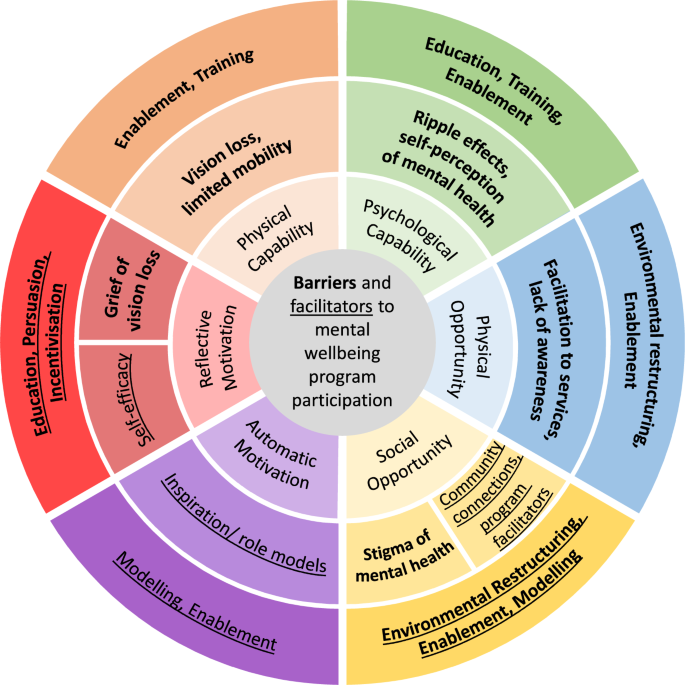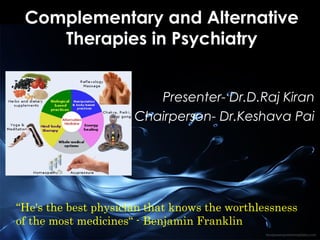Holistic approaches
Chicken Pox Prevention Boosting Immunity Naturally
Introduction
Chicken pox, a highly contagious viral infection caused by the varicella-zoster virus, primarily affects children but can also affect adults who have not been vaccinated or previously infected. While vaccination remains the most effective method for preventing chicken pox, there are natural ways to boost immunity and reduce the risk of infection.
Understanding Chicken Pox
Before delving into prevention methods, it’s essential to understand the nature of chicken pox. The virus spreads through respiratory droplets or direct contact with the rash of an infected individual. Symptoms include fever, fatigue, and the characteristic itchy rash of fluid-filled blisters, which can be quite uncomfortable.
Importance of Immunity
Maintaining a robust immune system is crucial for preventing not only chicken pox but also various other infectious diseases. The immune system acts as the body’s defense mechanism, identifying and eliminating pathogens such as viruses and bacteria. Strengthening immunity can help the body fight off infections more effectively.
Healthy Diet and Nutrition
A balanced diet rich in vitamins, minerals, and antioxidants is essential for supporting immune function. Incorporating plenty of fruits, vegetables, whole grains, and lean proteins into your diet provides the nutrients necessary for optimal immune response. Focus on foods high in vitamin C, vitamin D, zinc, and antioxidants to bolster immunity.
Regular Exercise
Physical activity not only improves overall health but also enhances immune function. Engaging in regular exercise promotes circulation, reduces inflammation, and stimulates the production of immune cells. Aim for at least 30 minutes of moderate exercise most days of the week to reap the immune-boosting benefits.
Adequate Sleep
Quality sleep is vital for immune health and overall well-being. During sleep, the body repairs and regenerates cells, including those involved in immune function. Aim for 7-9 hours of uninterrupted sleep per night to support immune function and reduce the risk of infections such as chicken pox.
Stress Management
Chronic stress can weaken the immune system, making the body more susceptible to infections. Implementing stress-reduction techniques such as mindfulness meditation, deep breathing exercises, and yoga can help lower stress levels and enhance immune function. Prioritize self-care activities that promote relaxation and mental well-being.
Hygiene Practices
Practicing good hygiene habits is essential for preventing the spread of infectious diseases like chicken pox. Encourage frequent handwashing with soap and water, especially after coughing, sneezing, or using the restroom. Avoid touching your face, particularly your eyes, nose, and mouth, to reduce the risk of virus transmission.
Avoiding Close Contact
Since chicken pox is highly contagious, avoiding close contact with individuals who are infected or showing symptoms is crucial. Keep a safe distance from anyone with chicken pox, and avoid sharing personal items such as clothing, towels, and utensils to prevent the spread of the virus.
Conclusion Read more about chicken pox tips
Nurturing Psychiatric Wellbeing: A Holistic Approach

Exploring the Path to Psychiatric Wellbeing: A Holistic Journey
Embarking on the path to psychiatric wellbeing involves a comprehensive and holistic approach that encompasses mental health, emotional balance, and overall psychological wellness. In a world where mental health awareness is gaining prominence, understanding the nuances of psychiatric wellbeing becomes paramount. Let’s delve into the multifaceted aspects that contribute to fostering and maintaining psychiatric wellbeing.
Understanding Psychiatric Wellbeing
Psychiatric wellbeing extends beyond the absence of mental illness; it encapsulates a state of positive mental health, emotional resilience, and the ability to cope with life’s challenges. At its core, it involves achieving a balance that allows individuals to navigate their emotions, thoughts, and relationships in a way that contributes to a fulfilling and meaningful life.
Promoting Mental Health Awareness
A crucial component of psychiatric wellbeing is promoting mental health awareness. Awareness initiatives aim to destigmatize mental health issues, encourage open conversations, and create a supportive environment for those facing challenges. By fostering a culture of understanding and empathy, communities contribute to a positive atmosphere that nurtures psychiatric wellbeing.
Holistic Approaches to Mental Health
Psychiatric wellbeing often benefits from holistic approaches that address the interconnected aspects of mental health. This includes considering lifestyle factors, nutrition, physical activity, and stress management. Holistic interventions contribute to a more comprehensive understanding of mental health and provide individuals with a range of tools to enhance their overall psychological wellbeing.
Embracing Emotional Resilience
Emotional resilience is a key pillar of psychiatric wellbeing. It involves the ability to adapt to stress, bounce back from setbacks, and maintain a positive outlook amidst life’s challenges. Developing emotional resilience is a dynamic process that involves self-awareness, coping strategies, and fostering a mindset that promotes adaptability in the face of adversity.
The Role of Supportive Relationships
Strong and supportive relationships play a pivotal role in psychiatric wellbeing. Social connections, whether with family, friends, or a community, contribute to emotional support, a sense of belonging, and opportunities for positive social interactions. Building and nurturing these connections fosters a supportive network that bolsters mental health.
Seeking Professional Guidance
In certain situations, seeking professional guidance is instrumental in achieving psychiatric wellbeing. Mental health professionals, including psychologists and therapists, offer valuable insights, coping strategies, and therapeutic interventions. Seeking help is a proactive step toward addressing specific mental health concerns and developing tools for ongoing wellbeing.
Mindfulness and Psychological Wellness
The practice of mindfulness has gained recognition for its positive impact on psychiatric wellbeing. Mindfulness involves being present in the moment, cultivating awareness, and embracing non-judgmental acceptance. Incorporating mindfulness techniques, such as meditation and mindful breathing, contributes to stress reduction and enhances overall psychological wellness.
Balancing Work and Life
Achieving a balance between work and personal life is integral to psychiatric wellbeing. Excessive work-related stress can have a significant impact on mental health. Therefore, establishing boundaries, practicing time management, and prioritizing self-care contribute to a harmonious integration of work and life, fostering mental and emotional equilibrium.
Utilizing Psychiatric Wellbeing Resources
For individuals seeking to explore and enhance their
Exploring Effective Psychiatric Therapies for Mental Wellness

Exploring Effective Psychiatric Therapies for Mental Wellness
In the realm of mental health, various psychiatric therapies play a pivotal role in promoting well-being and addressing psychological challenges. These therapeutic interventions cater to a wide range of conditions, offering individuals avenues for healing and personal growth.
Understanding the Significance of Psychiatric Therapies
Psychiatric therapies encompass a diverse array of approaches designed to alleviate symptoms of mental health disorders and enhance overall psychological functioning. These therapeutic modalities may include psychotherapy, medication management, and holistic interventions that prioritize the well-being of the individual.
Psychotherapy: Unraveling the Threads of the Mind
One of the cornerstone treatments is psychotherapy, a collaborative process between a trained therapist and an individual. This approach delves into thoughts, emotions, and behaviors, fostering self-awareness and providing coping strategies. Cognitive-behavioral therapy (CBT), dialectical behavior therapy (DBT), and psychodynamic therapy are just a few examples, each tailored to address specific needs.
Medication Management: Balancing Neurochemistry
For some individuals, medication management is an integral component of psychiatric treatment. Psychiatric medications aim to regulate neurotransmitters in the brain, addressing chemical imbalances associated with conditions such as depression, anxiety, or bipolar disorder. It is essential to work closely with healthcare professionals to find the right medication and dosage for optimal results.
Holistic Approaches: Nurturing Mind-Body Connection
Beyond traditional methods, holistic approaches to psychiatric wellness emphasize the interconnectedness of mind and body. Practices such as mindfulness meditation, yoga, and art therapy contribute to a comprehensive treatment plan. These techniques not only address symptoms but also promote overall well-being and resilience.
Tailoring Therapies to Individual Needs
The effectiveness of psychiatric therapies lies in their ability to be tailored to the unique needs of each individual. A personalized approach ensures that treatment aligns with specific challenges, preferences, and goals, fostering a more meaningful and impactful therapeutic journey.
Challenges in Access to Psychiatric Therapies
Despite the benefits of psychiatric therapies, challenges persist in terms of accessibility. Factors such as geographic location, financial constraints, and stigma can limit individuals’ ability to access these vital mental health resources. Efforts to destigmatize mental health and increase accessibility are crucial for creating a more inclusive and supportive environment.
The Role of Technology in Psychiatric Therapies
Advancements in technology have expanded the reach of psychiatric therapies. Teletherapy, online platforms, and mental health apps provide opportunities for individuals to connect with mental health professionals and access therapeutic resources from the comfort of their homes. Technology bridges gaps, making mental health support more accessible and convenient.
Psychiatric Therapies: A Lifelong Journey
Psychiatric therapies are not one-size-fits-all solutions; they are dynamic and evolve with the individual. The journey towards mental wellness may involve exploring different therapeutic modalities over time. Flexibility and an open-minded approach to treatment contribute to long-term success.
Embracing the Future: Linking to Psychiatric Therapies
In embracing the future of mental health, it is essential to acknowledge the role of innovative and effective psychiatric therapies. To learn more about the diverse range of therapeutic options available, including psychotherapy, medication management, and holistic approaches, visit Psychiatric
Navigating Mental Wellness: Insights into Psychiatric Care

Exploring the Landscape of Psychiatric Care
Psychiatric care plays a crucial role in fostering mental wellness, addressing a spectrum of mental health conditions, and supporting individuals on their journey to recovery. This article delves into the multifaceted aspects of psychiatric care, its key components, and the significance it holds in promoting mental well-being.
The Foundations of Psychiatric Care
At the core of psychiatric care is a commitment to understanding and treating mental health conditions. Psychiatrists, mental health nurses, and other professionals in this field work collaboratively to provide comprehensive assessments, diagnoses, and personalized treatment plans. This holistic approach recognizes the interconnected nature of mental health and aims to address the diverse needs of individuals.
Psychotherapy: Nurturing Emotional Well-being
Psychotherapy, also known as talk therapy, is a cornerstone of psychiatric care. Through various therapeutic modalities, such as cognitive-behavioral therapy (CBT), dialectical behavior therapy (DBT), and psychodynamic therapy, individuals can explore their thoughts, emotions, and behaviors in a supportive and confidential environment. Psychotherapy serves as a vital tool for managing and overcoming mental health challenges.
Medication Management: Balancing Biochemistry
For certain mental health conditions, medications play a crucial role in restoring the balance of neurotransmitters in the brain. Psychiatric care includes a meticulous process of medication management, where psychiatrists work closely with individuals to find the most effective medications with the fewest side effects. Regular monitoring and adjustments ensure optimal therapeutic outcomes.
Holistic Approaches to Mental Wellness
Psychiatric care extends beyond traditional therapeutic and pharmacological interventions. Holistic approaches incorporate lifestyle factors, such as nutrition, exercise, and mindfulness, into treatment plans. This comprehensive perspective recognizes that mental well-being is influenced by various factors, and addressing each aspect contributes to a more balanced and resilient mind.
Crisis Intervention and Emergency Psychiatric Care
In situations of acute distress or crisis, psychiatric care includes emergency interventions. Crisis hotlines, psychiatric emergency rooms, and crisis intervention teams are crucial components of mental health services. These services provide immediate support and intervention for individuals experiencing severe emotional or psychological crises.
Collaborative Care Models: Integrating Services
Collaborative care models emphasize the integration of psychiatric care into broader healthcare settings. By working collaboratively with primary care physicians, social workers, and other healthcare professionals, psychiatrists ensure that mental health considerations are seamlessly woven into overall healthcare plans. This collaborative approach enhances the coordination and continuity of care.
Telepsychiatry: Bridging Gaps in Accessibility
Advancements in technology have brought forth telepsychiatry, a practice that leverages virtual platforms to provide psychiatric care remotely. This innovation is particularly valuable in addressing geographical barriers, improving accessibility to mental health services, and ensuring that individuals in underserved areas can receive timely and effective care.
Stigma Reduction and Mental Health Advocacy
Psychiatric care goes hand in hand with efforts to reduce the stigma surrounding mental health. Mental health advocates and professionals work tirelessly to challenge misconceptions, promote understanding, and create a supportive environment for individuals seeking psychiatric care. The ongoing battle against stigma is integral to fostering a society that prioritizes mental wellness.
Navigating Mental Wellness with Psychiatric Care
Cultivating Wellness: Essential Mental Health Support

Cultivating Wellness: Essential Mental Health Support
In the pursuit of overall well-being, mental health support plays a crucial role. Nurturing mental health is not only essential for individuals facing challenges but is an integral aspect of maintaining a balanced and fulfilling life.
The Importance of Mental Health Awareness
Mental health awareness serves as the foundation for fostering well-being. Recognizing the significance of mental health normalizes conversations around emotional struggles and encourages seeking support when needed. It is a vital step in reducing stigma and creating a more empathetic and understanding society.
Accessing Professional Counseling Services
Professional counseling services form a cornerstone of mental health support. Licensed therapists and counselors provide a safe space for individuals to explore their thoughts and emotions, offering guidance and coping strategies. Therapy sessions can address a range of concerns, from stress and anxiety to more complex mental health conditions.
Community and Peer Support Networks
Community and peer support networks contribute significantly to mental health. Engaging with others who share similar experiences fosters a sense of belonging and understanding. Support groups provide an avenue for individuals to share challenges, triumphs, and coping mechanisms, creating a supportive community that reinforces mental well-being.
Online Mental Health Resources
The digital age has brought forth a wealth of online mental health resources. Websites, forums, and apps offer information, self-help tools, and virtual support communities. Online platforms bridge gaps in accessibility, providing a convenient way for individuals to access mental health resources from the comfort of their homes.
Promoting Self-Care Practices
Self-care is a fundamental aspect of mental health support. Encouraging individuals to prioritize self-care practices, such as mindfulness, exercise, and adequate sleep, enhances overall well-being. These practices contribute to stress reduction, emotional regulation, and the development of resilience in the face of life’s challenges.
Holistic Approaches to Mental Health
Holistic approaches recognize the interconnectedness of mental, emotional, and physical well-being. Integrating practices like yoga, meditation, and holistic therapies into one’s routine can promote a balanced and harmonious mental state. Holistic approaches encourage a proactive stance towards mental health, emphasizing prevention and maintenance.
The Role of Supportive Workplace Environments
Workplace environments play a significant role in mental health support. Employers fostering supportive workplaces, promoting work-life balance, and implementing mental health programs contribute to the well-being of their employees. Recognizing and addressing workplace stressors is crucial in creating a conducive atmosphere for mental health.
Education and Mental Health Literacy
Education on mental health and fostering mental health literacy are essential components of support. Understanding common mental health conditions, recognizing symptoms, and knowing how to respond are vital for individuals, families, and communities. Mental health education reduces stigma and empowers individuals to seek help when needed.
Breaking Barriers to Accessible Mental Health Care
Despite the progress made in mental health support, barriers to access still exist. These may include financial constraints, stigma, and limited resources. Breaking down these barriers requires collective efforts from communities, policymakers, and healthcare providers to ensure that mental health care is accessible to all.
Explore Mental Health Support for

